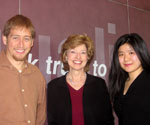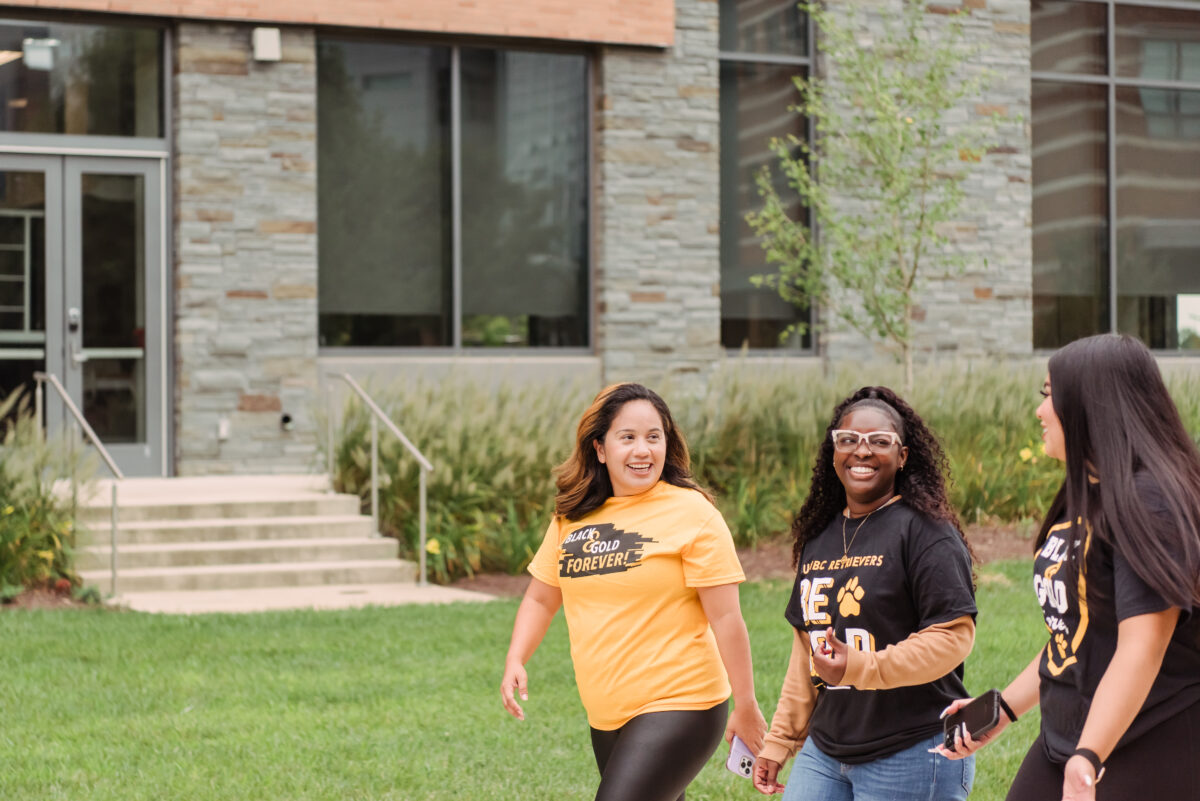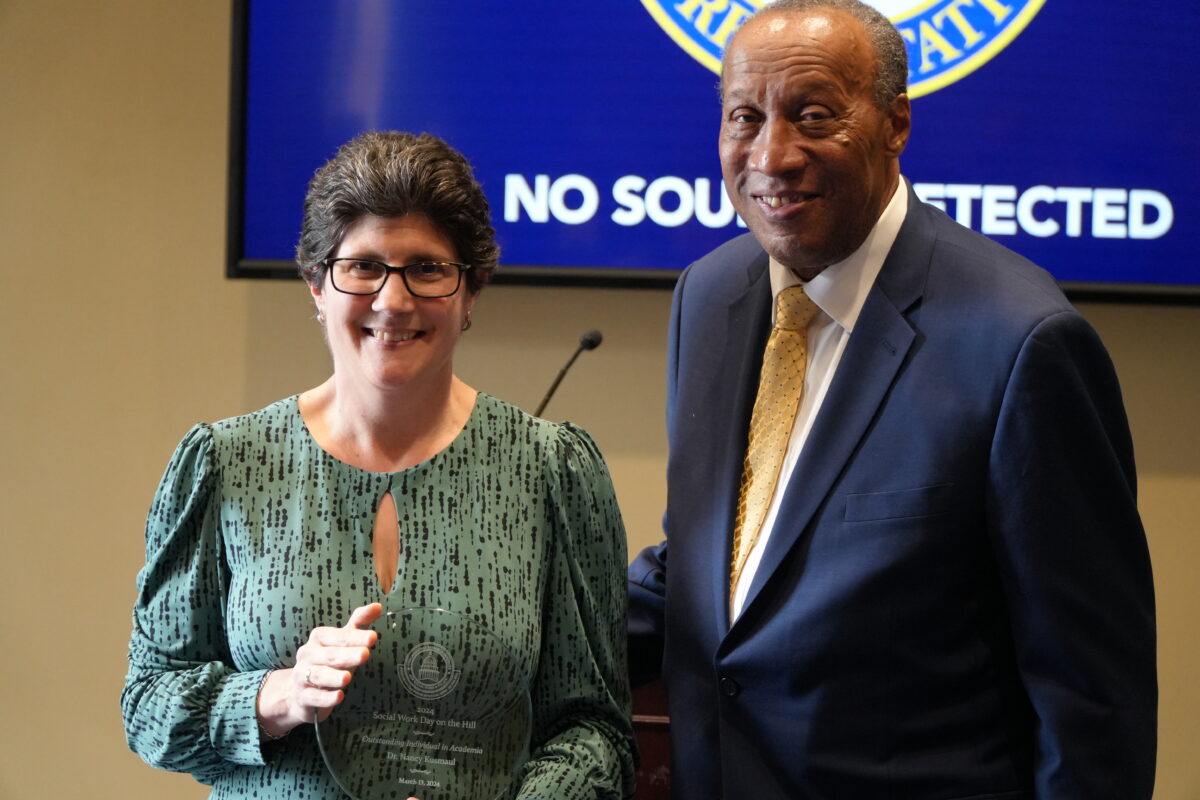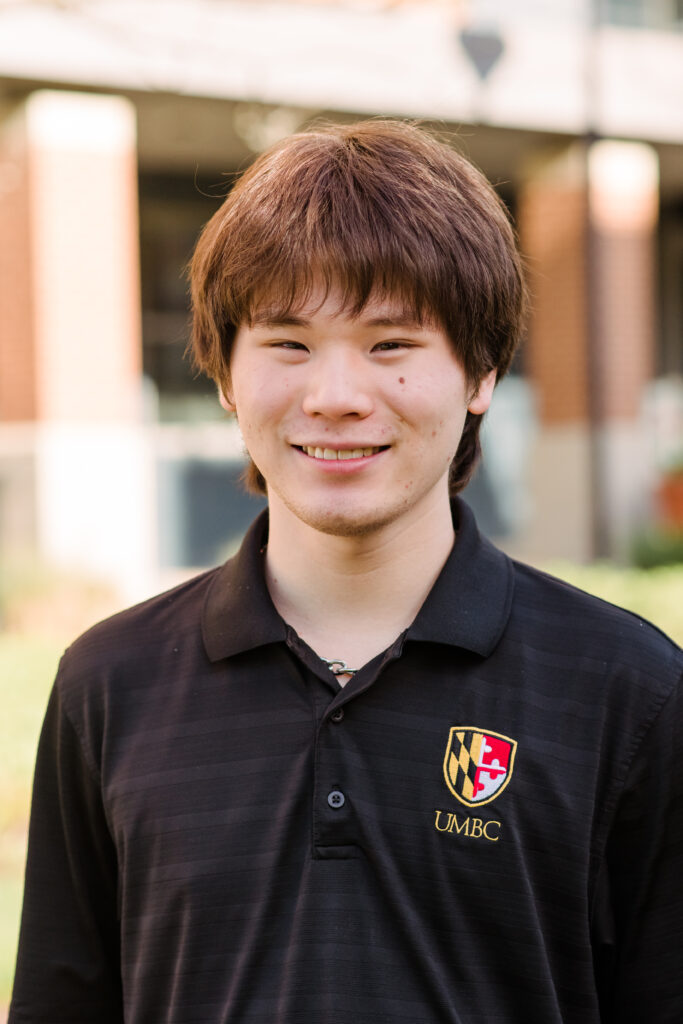UMBC Student and Faculty Entrepreneurs
Look for more information on entrepreneurship at UMBC, and faculty and student entrepreneurs, on the UMBC Web site and myUMBC portal throughout the semester.
Melissa Amor
Senior, Political Science
Amor came to UMBC with plans for a career in law, but in her freshman year she took a class in The Practice of Management and became inspired by the idea of entrepreneurship. Now, she is a finalist in the Most Promising Campus CEO contest, founded by Randal Pinkett and is also interviewing at such prestigious graduate schools as Harvard, Notre Dame and Georgetown.
Amor’s Most Promising Campus CEO contest entry grew out of a class project with students Natalie Collings, Jessica Most and Johnny Tseng ’05, economics, to start a mobile salon. Amor expanded on the group’s ideas by creating a franchising plan for the salon, and hopes the group will reunite to develop the business regardless of the contest’s outcome.
In the 2006 MoshPit Business Plan Competition sponsored by the Greater Baltimore Technology Committee, Amor was part of a team that finished in second place against approximately 174 other entrepreneur student-led teams/companies from the Baltimore area. She also helped UMBC alumni Wan His Yuan and Jason Servary, founders of Openposting.com, market the first online classified community for college students.
Sandor Dornbush,
Ph.D. Student, Computer Science
Dornbush has found entrepreneurial ideas in things that bug him – being stuck in traffic and his dislike for making playlists for his iPod.
Dornbush is part of a research group led by one of his mentors — computer science professor Zary Segall-which specializes in human aware computing-making computers wearable, ubiquitous and most importantly, able to sense and adjust to a user’s mood, surroundings and social situation.
Last year, with the help of visual arts professor David Yager and the encouragement of Alex. Brown Center for Entrepreneurship Director Vivian Armor, Dornbush took his idea StreetSmart Traffic to the Greater Baltimore Technology Council’s “Mosh Pit” business plan competition and placed third overall. The idea uses peer-to-peer wireless communication to boost a standard GPS driving aid.
More recently, Dornbush expanded on an idea for a smart MP3 player developed by Segall. The “XPod” learns the type of music its owner likes best and automatically plays the perfect song for studying in the library, working out in the gym or chilling out at home. The project was the source of a widely cited research paper, which led to media coverage in Electronic Musician, Newsday, the Baltimore Sun and others.
“The Mosh Pit competition was very fun and I learned a lot about how to develop and pitch a business plan,” said Dornbush. “I was kind of amazed by the support and attention that I got from the University when I did as well as I did. I would strongly recommend anybody with novel ideas that have market potential to pitch their idea.”
Doug Hamby
Associate Professor, Dance
After participating in the Alex. Brown Center for Entrepreneurship’s Faculty Summer Institute, Hamby created a Dance and Entrepreneurship class, which he is teaching during the spring 2007 semester. Students in the class have formed a dance company, and will be creating new dances and promoting the new company’s concert (12 p.m., April 27, Fine Arts 317). They spend two hours per week developing the new work and two hours learning about marketing and promotion.
Hamby said the class evolved out of years of talking with students about how to use their degree in dance. “They have to find their niche, they have to learn how to brand themselves and they have to be professional in how they go about this. Artists have to be entrepreneurial, to think in a creative way, to look for opportunities in order to get work,” he explained.
“I’ve founded my own company and produced many concerts, so I want to share my experience in a more formal setting with students,” Hamby added. “I think learning how to be an artist-entrepreneur changes them. It helps them prepare more while they are in school for life after graduation. They concentrate more on what they need to do in order to have the kind of career they want.”
Kriste Lindenmeyer
Professor and Chair, History
“Humanities and social science scholars have always been entrepreneurs – they just don’t know it,” said Lindenmeyer. “They are creating new fields of research and finding new ways to look at old problems. Entrepreneurship is about finding innovative solutions from a variety of perspectives.”
Lindenmeyer’s exposure to entrepreneurship began when she became a volunteer email list editor for Humanities Net (H-Net), an international consortium of scholars and teachers pioneering new communication technology in order to advance teaching and research in the arts, humanities and social sciences. “H-Net took the latest technological opportunity that scientists and engineers were using and adapted it to our own fields of interest,” Lindenmeyer said.
At UMBC, Lindenmeyer says she sees many examples of entrepreneurship, including collaborative projects across disciplines. She serves as a consultant for a National Institutes of Health-funded project led by principal investigator Lee Boot, associate director of UMBC’s Imaging Research Center, entitled The Fieldtrip Project. UMBC faculty from a wide range of disciplines are developing an online community designed to stimulate discourse among teens concerning issues affecting their orientation toward school and learning. The community will include an episodic reality show, online role-playing game and discussion forums, among other media. Co-investigators for The Fieldtrip Project are Susan Sonnenschein, psychology, Linda Baker, psychology and Dongsong Zhang, mechanical engineering. In addition to Lindenmeyer, the consultants are Wayne Lutters, information systems and David Mitch, economics. Information systems Ph.D. student David Gurzick is the project’s graduate assistant.
Antonio “Tony” Moreira
Vice Provost for Academic Affairs
Professor, Chemical and Biochemical Engineering
With over 25 years of experience working with the biotechnology industry, Moreira has turned his expertise into a company with global reach. In 2000, he partnered with a European consulting firm to form SPI USA, Inc., which specializes in training and consulting services that help biotech clients comply with US Food and Drug Administration regulations and maintain best processes and practices for manufacturing.
What began as a corporate training CD-ROM has since expanded into a global business beyond biotech connecting UMBC and Maryland to the world. “We currently have projects in India, Singapore, Hong Kong, Taiwan, Portugal, Albania and the U.S.,” said Moreira. Located in bwtech@UMBC research park, SPI USA has also hired many student interns from UMBC’s Shriver Center, some of whom have been assigned to positions in SPI’s European offices.
Moreira brings lessons learned from business back to classes he teaches at UMBC. “We often invite speakers from industry and the FDA to be guest lecturers to give current experience to the classroom,” he said. “And we use case studies on ongoing issues in industry in lectures and class discussions.”
The collaboration also benefits the research of faculty and graduate students. “We are very focused on the biotech industry’s real needs,” Moreira said. “We now have a major collaboration with the FDA which involves other chemical engineering faculty and has resulted in very significant scholarly publications and invitations for our faculty and students to present at major research conferences.”
(2/19/07)
© 2006-07 University of Maryland, Baltimore County 1000 Hilltop Circle, Baltimore, MD 21250 410-455-1000




